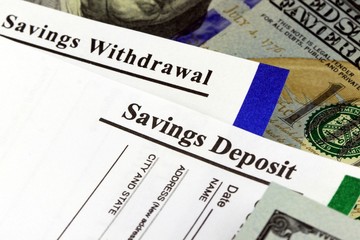
LARGE DEPOSITS WHEN BUYING A HOME
One of the most common "issues" when buying a home is properly documenting large deposits. The first question is "what is considered a large deposit"?. Lenders have guidelines that determine when they will ask about a large deposit.
Before we get to the large deposits here is another good point. If I have an opportunity to prepare home buyers for the process I recommend they pick an account they are using for their down payment, earnest money and closing costs for the loan and try not to move money into that account unnecessarily.
Funds needed for a home purchase need to be documented. I frequently have buyers who have several accounts and they move money often between all of them. That means I often need to document up to five accounts because the deposits are substantial enough that I need to show where they came from. So step one, think ahead if possible and decide which account(s) will be used for a purchase contract.
Now, back to large deposits. If a home buyer deposits a small amount of incidental cash or a random check that is less than 50% of his/her monthly income then according to Fannie Mae it would not need to be documented. However, keep in mind underwriting guidelines change all the time so this would not always stand true for Fannie Mae, and different loan programs have different guidelines. Also, lenders may have different policies.
So my advice, keep it simple. Don't open a can of worms unless you absolutely must. In that case, call your loan officer and see what documentation they will need for any deposits that are not payroll related and can be documented as such. It is easier to document as you go, knowing what you need to keep than it is to go back a few months and try to figure out what a deposit was. This is particularly true when someone writes a personal check or a cash deposit is made. It is not easy to get that paper trail. As a rule if you are planning on a home purchase and you deposit any funds that are not payroll, then copy the check and keep the deposit slip. You'll be glad you did.

Comments(0)